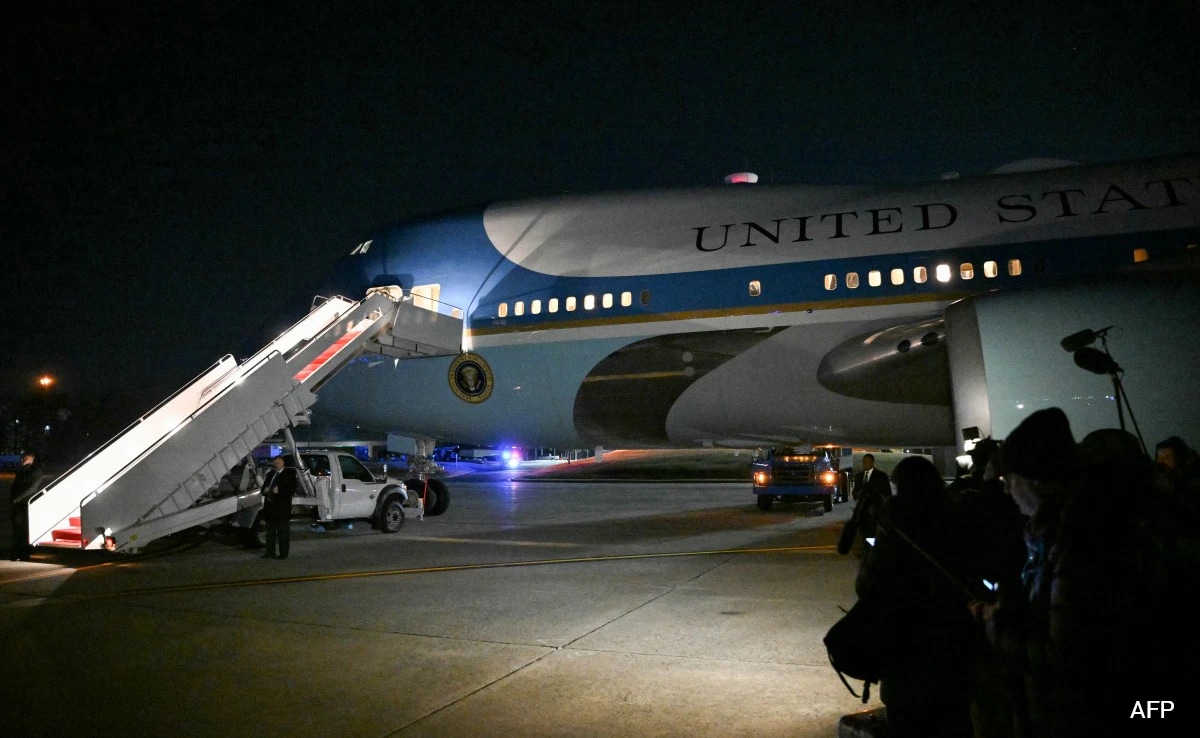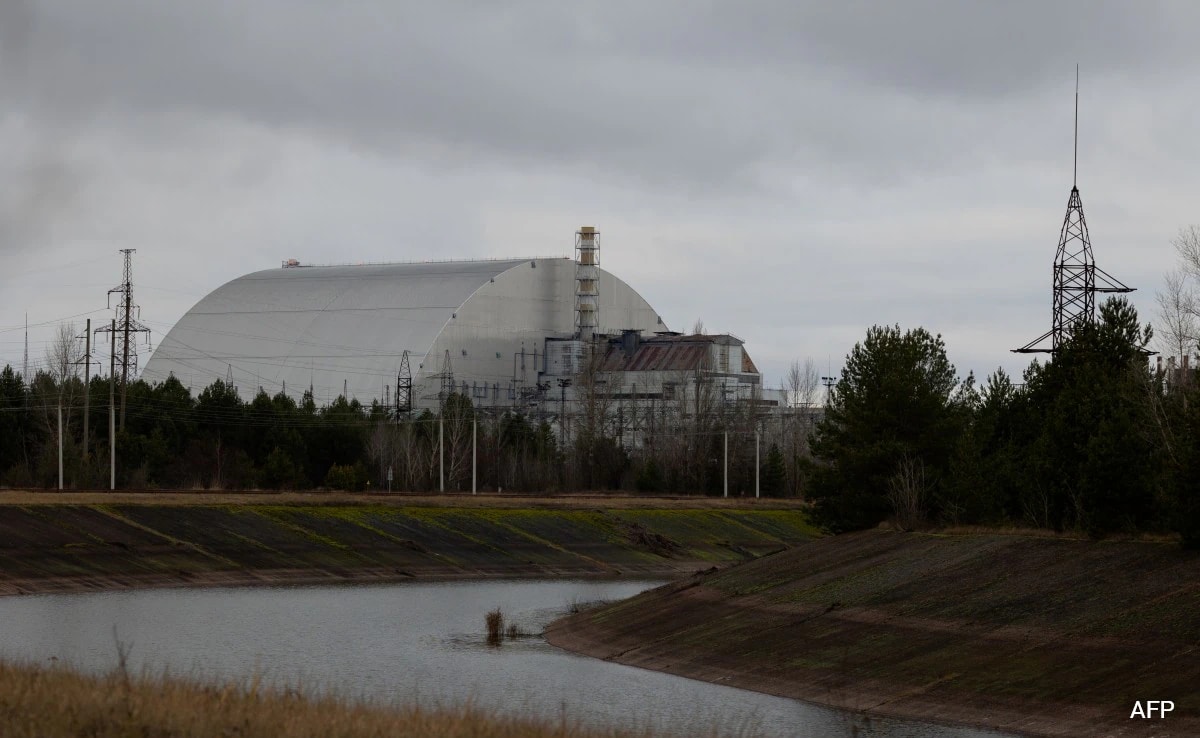If fighting continues, as many as 4 million â roughly 10 percent of the Ukrainian population â could be displaced in the coming weeks, Filippo Grandi, the U.N. high commissioner for refugees, said Monday.
Photos and videos from the past week show packed train stations and traffic jams snaking through border towns. Crowds of refugees huddle in groups to fight the cold, sleep on cots in churches and gymnasiums and sort through boxes of donations from around the world. Many of them are women and children; Ukrainian authorities have forced men ages 18 to 60 to stay in the country to fight the invasion.
More than half of the refugees have gone to Poland, and people are also streaming into Moldova, Slovakia, Romania and Hungary. A large number of people are expected to continue onto other European countries in the coming months.
Traffic data from Google showed severe backups at nearly every border crossing Sunday at 10:25 p.m. local time, particularly at crossings into Poland. Google has since temporarily disabled live traffic data in Ukraine, amid fears for the safety of local communities. Ukrainians trying to leave by train and bus also struggled with crowds and service halts.
Officials warn that the flow of refugees is likely to escalate into a full-blown humanitarian crisis.
âThe tidal waves of suffering this war will cause are unthinkable,â U.S. Ambassador to the United Nations Linda Thomas-Greenfield said on Feb 23.

Ukrainians rush to cross to
neighboring countries
Available border crossings to Europe
Populated areas
Warsaw
BELARUS
RUSSIA
POLAND
Kyiv
Lviv
Dnieper
Kharkiv
High-traffic
crossings
SLOVAKIA
MOLDOVA
UKRAINE
Budapest
HUNGARY
Odessa
ROMANIA
CRIMEA
Bucharest
As of Feb. 27.
Does not include railway crossings.
Black Sea
100 MI
Sources: Ukrainian government, border police authorities.

Ukrainians rush to cross to
neighboring countries
Available border crossings to Europe
Populated areas
Warsaw
BELARUS
RUSSIA
POLAND
Kyiv
Lviv
Dnieper
Kharkiv
High-traffic
crossings
SLOVAKIA
UKRAINE
MOLDOVA
Budapest
HUNGARY
Odessa
ROMANIA
CRIMEA
Bucharest
Black Sea
As of Feb. 27.
Does not include railway crossings.
100 MI
Sources: Ukrainian government, border police authorities.

Ukrainians rush to cross to neighboring countries
Available border crossings to Europe
Populated areas
Warsaw
BELARUS
RUSSIA
POLAND
Kyiv
Lviv
Kharkiv
Dnieper
High-traffic
crossings
SLOVAKIA
UKRAINE
Budapest
MOLDOVA
HUNGARY
Odessa
ROMANIA
CRIMEA
Bucharest
Black Sea
As of Feb. 27.
Does not include railway crossings.
100 MI
Sources: Ukrainian government, border police authorities.

Ukrainians rush to cross to neighboring countries
Available border crossings to Europe
Populated areas
Warsaw
BELARUS
RUSSIA
POLAND
Kyiv
Lviv
Kharkiv
Dnieper
SLOVAKIA
High-traffic
crossings
Bratislava
UKRAINE
MOLDOVA
Budapest
HUNGARY
Odessa
ROMANIA
CRIMEA
Bucharest
Black Sea
As of Feb. 27.
Does not include railway crossings.
100 MI
Sources: Ukrainian government, border police authorities.
On Sunday, Ylva Johansson, the European Unionâs home affairs commissioner, said member nations need to be prepared to support âmillionsâ of Ukrainians in the coming months.
Ukrainians can stay, visa-free, for 90 days in E.U. nations, and under new rules expected to be adopted Thursday, Ukrainian nationals will be eligible for âtemporary protectionâ within the 27-nation bloc for up to three years, depending partly on conditions in Ukraine.
More than 500,000 people had crossed into Poland as of Wednesday. In total, the country is expected to receive up to 1.5 million refugees.
A spokesperson for the U.N. refugee agency posted a video on Monday showing crowds gathered outside a warehouse in Poland that was being used as a reception center for âa few thousandâ refugees.
On Sunday, lines of cars stretched for 20 miles from the border crossing into Medyka, Poland, one of the busiest crossings between the two countries.
Slovakia declared a state of emergency Saturday morning because of the mass influx of refugees caused by the war. The government approved an infrastructure bill of 13 million euros ($14.5 million) to strengthen the Ukrainian border infrastructure and complete asylum facilities.
Slovakian officials said Saturday that the country will provide monthly stipends to Slovakians who support and house displaced Ukrainians.
Nearly 120,000 Ukrainians have crossed into nearby Hungary, and more than 79,000 into Moldova since Feb. 24, according to the UNHCR.
Satellite images provided by Maxar showed a four-mile-long line at the border crossing in Siret, Romania, on Feb. 25. The UNHCR estimates that the NATO country of 19 million could take in up to 250,000 refugees.

Kyiv
UKRAINE
Siret border
crossing
ROMANIA
Bucharest
4 MILES
TO ROMANIA
Line of cars
NORTH
3 MILES
2 MILES
1 MILE
Detail
below
UKRAINE
ROMANIA
Border crossing
station
0

Kyiv
UKRAINE
Siret border
crossing
ROMANIA
Bucharest
4 MILES
TO ROMANIA
NORTH
Line of cars
3 MILES
2 MILES
1 MILE
Detail
below
UKRAINE
ROMANIA
Border crossing
station
0

Kyiv
UKRAINE
Siret border
crossing
ROMANIA
Bucharest
4 MILES
TO ROMANIA
Line of cars
NORTH
3 MILES
2 MILES
1 MILE
Detail
below
UKRAINE
ROMANIA
Border crossing
station
0

Kyiv
UKRAINE
Siret border
crossing
ROMANIA
Bucharest
4 MILES
TO ROMANIA
Line of cars
NORTH
3 MILES
2 MILES
1 MILE
UKRAINE
ROMANIA
Border crossing
station
0
Source: Satellite image ©2022 Maxar Technologies

NORTH
Cars and
trucks
1,000 FEET
Border
crossing
station
UKRAINE
ROMANIA
Source: Satellite image ©2022 Maxar Technologies

NORTH
Cars and
trucks
1,000 FEET
Border
crossing
station
UKRAINE
ROMANIA
Source: Satellite image ©2022 Maxar Technologies

NORTH
1,000 FEET
Border
crossing
station
UKRAINE
ROMANIA
Cars and trucks
Source: Satellite image ©2022 Maxar Technologies

NORTH
UKRAINE
ROMANIA
1,000 FEET
Border
crossing
station
Cars and trucks
The Romanian border police say more than 100,000 people have crossed into the country since Feb. 24, but only 45,000 have remained there.
As the flow of refugees out of Ukraine intensifies, some will stay in eastern Europe, but others will continue westward to countries like Germany. A train arrived in Berlin on Wednesday, carrying refugees from the Ukrainian-Polish border. There, they found Germans offering water and holding signs offering places to stay.
Anna Svitlyk, who arrived in Berlin with her five children after leaving Ukraine over the weekend, said she planned to sleep in a hotel next to the train station that is offering free accommodation for a few days, then make her way to Sweden to wait out the war.
âEvery European country gave us free food, free shelter. We owe them so much and are so grateful,â she told The Washington Post. âBut we want to go home."
As conflict intensified, Ukraineâs border guards were ordered last week to stop all male citizens between the ages of 18 and 60 from leaving the country, disappointing many who got to border checkpoints after hours of travel and wait.
âIf I could go, too, I would,â Vitali, 31, told The Washington Post after his wife and child crossed into Poland, with tears in his eyes. âItâs brutal.â
Annabelle Timsit, Leslie Shapiro, Monica Ulmanu, Shelly Tan and Youjin Shin contributed to this report.
A previous version of this article misstated the amount allocated by Slovakia's infrastructure bill to strengthen border infrastructure. The bill authorized 13 million euros for border infrastructure, not 13 billion euros. This article has been corrected.
.png)











 English (United States) ·
English (United States) ·  Turkish (Turkey) ·
Turkish (Turkey) ·